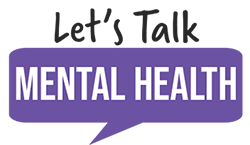
Key Messages
Back to Basics: Breathe, set boundaries, prioritize sleep and rest, eat to nourish, move your body.
Relationships Matter: Invest in and connect with yourself and others; identify safe spaces, mentors, and other supports.
Problem Solve: Your feelings are valid; identify what you need and take action, no matter how small
Give Yourself Permission: To ask for help; it can be hard, you deserve to be supported
Our Philosophy
The Center for Student Wellness believes that practicing self-care is essential to mental health. We acknowledge that oppression and trauma influence well-being and the effects of oppression and privilege have a bearing on how we are able to care for ourselves. We believe that self-care must center nuanced experiences and includes challenging systems that create and uphold barriers to caring for one’s body, mind, and soul. We encourage students to prioritize their basic needs, connect with supports, and practice their own brand of self-care that makes their body, mind, and soul feel best, even if that’s taking five minutes for themselves.
Discover
What messages do you receive around caring for your mind? Listen to a variety of perspectives, from experts and peers, and consider how it relates to your experiences.
Hear from an Expert
"There's No Shame in Taking Care of Your Mental Health"
Sangu Delle
Ted Talk: TED Talk: Confessions of Depressed Comic
Article: Myths vs. Reality: What Does a Panic Attack Feel Like?
Journey to Wellness Podcast: Care for your Mind
BC Podcast: Let’s Talk Mind at BC
BC Blog: Mental Health: You are Not Alone
Explore
How do you care for your mind? Engage in these reflective activities to discover what works best for you.
Rest requires more than just sleeping. Read about the 6 types of rest you need. Staying busy is easy, but resting has become a challenge. Pick 2 ways you plan to rest this week and reflect on whether it helped you bring a feeling of control back to both your body and mind.
Relationships Matter: Is your friend going through a tough time? There are a number of signs to watch out for and if something seems wrong, ask. Check out the guide on how to offer support. Also Download the WellTrack App for yourself or offer it as a resource to friends. Know that you can always talk to a professional in UCS, WC, or with one of our CSW staff members.
Problem Solve: Think about what's been occupying your mind, taking up space, and making you feel not so great - maybe it's a pervasive negative thought you have. Write it out and get your thoughts on paper - including a strength you possess that helps you reframe and get through these times. Then talk to someone about what you’re struggling with and be honest - whether it be a friend or professional, have a genuine conversation about how you are feeling and what you need.
Give Yourself Permission: To ask for help. When you start to feel overwhelmed it can be easy to catastrophize and think that there is no way to get everything done. But before you let yourself spiral, try to identify the biggest stressor - is a big exam you don’t feel prepared for? Is it a conflict with your roommate? Is it concern for family back home? Is it the mounds of laundry piling up? By identifying your biggest stressor at the time, you know what to tackle first. Go to office hours, talk to your roommate, consult with your RA, throw in a load of laundry, or reach out for help - you deserve to be supported!
Live
What do you need to do to care for your mind (or body, or soul) and live well? Sign up to meet with a Wellness Coach to reflect on your current wellbeing and set goals that feel achievable to you.
Let's Talk More...
We want to help you find joy in your journey, wherever you’re at. We have many resources within Center for Student Wellness and throughout campus to continue this conversation—we’re here to listen, reflect, and help you set and achieve health goals that feel intuitive, sustainable, and balanced.
Meet with a Peer Wellness Coach
Engage in a conversation about your health and wellness goals related to caring for your body - in the areas of sleep and general health, body image and exercise, and alcohol and other drugs!
Visit bc.edu/wellnesscoach to schedule your Wellness Coaching session and learn about each type of appointment, or use the links below to sign up directly through google calendar.

